where AI voice recognition for healthcare come into play, transforming how medical notes are created. By changing speech into text, these tools help reduce the organizational problem on doctors, allowing them to spend more time on patient care. In this blog post, we’ll explore the top AI voice recognition for healthcare, highlighting their features and benefits.

What is AI Voice Recognition for Healthcare?
AI voice recognition for healthcare refers to software that listens to spoken words and records them into text. This technology allows doctors to command patient notes, instructions, and medicines, which are then automatically entered into the system, saving time and reducing physical typing. By integrating these tools with Electronic Health Records (EHR), healthcare providers can improve accuracy, reduce documentation errors, and reorganize their workflows.
Top AI Voice Recognition for Healthcare tools
Here are some of the best AI voice recognition tools that are changing medical documentation:
1.) Nuance Dragon Medical One
Nuance Dragon Medical One is one of the leading AI-powered voice recognition tools specifically designed for healthcare professionals. It offers cloud-based, speech-to-text abilities that work effortlessly with EHR systems.
- Benefits: Doctors can dictate notes directly into their EHR, meaningfully reducing the time spent on documentation and improving accuracy. Its mobile accessibility ensures flexibility, allowing healthcare providers to update notes on the liveliness.
- Ideal For: Healthcare professionals seeking a fast, accurate voice acknowledgment tool that integrates seamlessly with various EHR platforms.
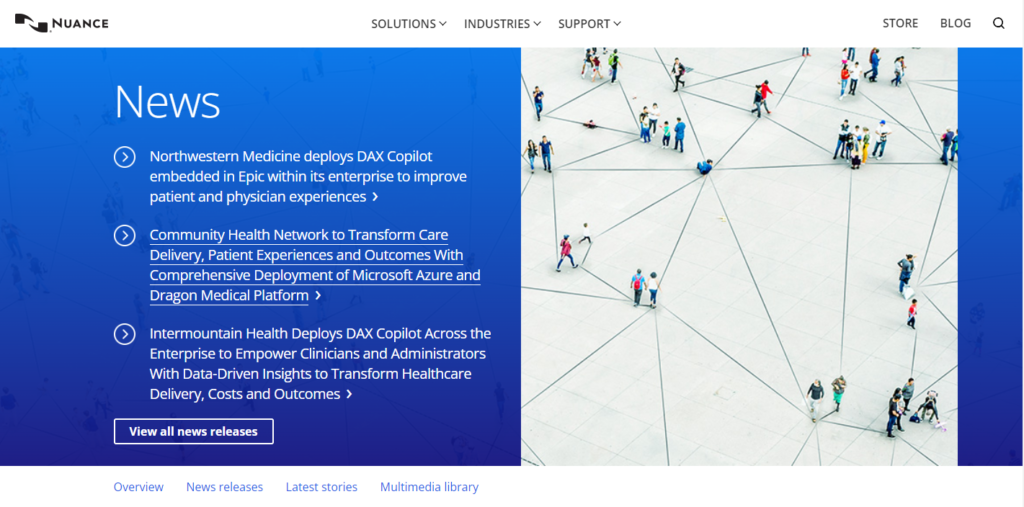
2.) Suki AI
Suki AI is a voice-enabled medical assistant designed to help doctors with medical documentation. It uses advanced natural language processing (NLP) to understand instructions and generate medical notes in real time.
- Benefits: Suki reduces the need for manual typing by allowing doctors to command their notes, leading to faster and more efficient medical documentation. The AI learns from user behavior, improving the tool’s functionality over time.
- Ideal For: Healthcare providers looking for a simple, voice-activated assistant to manage their documentation workflow.
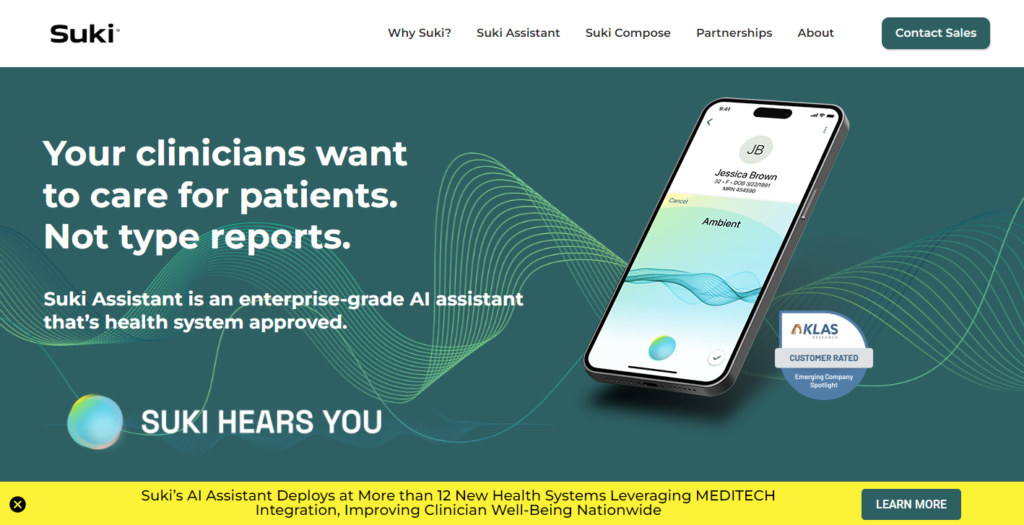
3.) M*Modal Fluency Direct
M*Modal Fluency Direct is an AI voice recognition tool that integrates with clinical systems to provide correct medical transcriptions. It enables surgeons to dictate patient notes and offers real-time feedback to improve documentation quality.
- Benefits: M*Modal Fluency Direct not only transcribes voice commands but also provides quality feedback, helping physicians ensure that their notes are accurate and complete. This reduces the need for manual corrections and saves time.
- Ideal For: Healthcare professionals who want a tool that offers both voice recognition and real-time feedback for better note-taking accuracy.
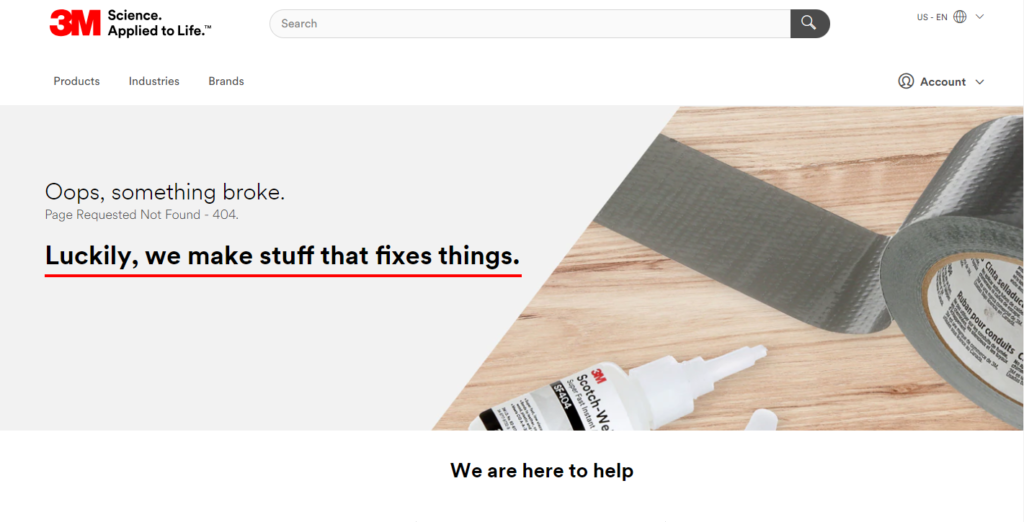
4.) Google Cloud Healthcare API
Google Cloud Healthcare API provides AI-powered voice recognition through its Speech-to-Text feature. This tool offers medical-grade accuracy and is highly scalable for healthcare providers of all sizes.
- Benefits: Google Cloud’s Speech-to-Text is known for its ability to handle large volumes of data while maintaining high accuracy in medical transcriptions. Its scalability makes it a great choice for healthcare organizations looking for a flexible, cloud-based solution.
- Ideal For: Healthcare providers seeking a powerful, cloud-based voice recognition tool that integrates with existing systems and services.
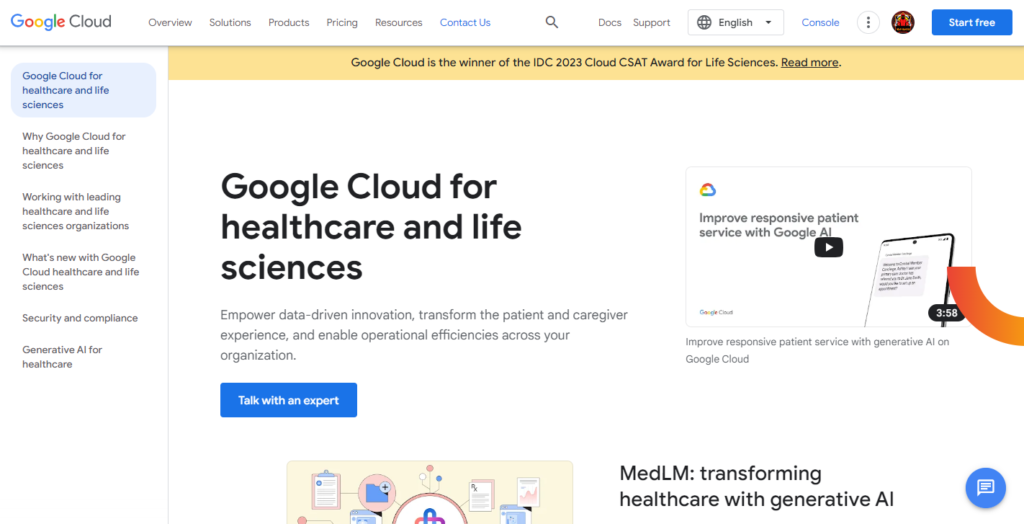
5.) Microsoft Azure Speech-to-Text
Microsoft Azure Speech-to-Text is another powerful AI voice recognition tool that can be customized for healthcare applications. It offers high accuracy and supports integration with medical software for efficient documentation.
- Benefits: Azure’s voice recognition technology allows healthcare providers to dictate notes and commands efficiently, improving workflow while maintaining data security through Microsoft’s cloud infrastructure.
- Ideal For: Hospitals and healthcare organizations that are already using Microsoft’s cloud services and want a robust, integrated voice recognition tool.
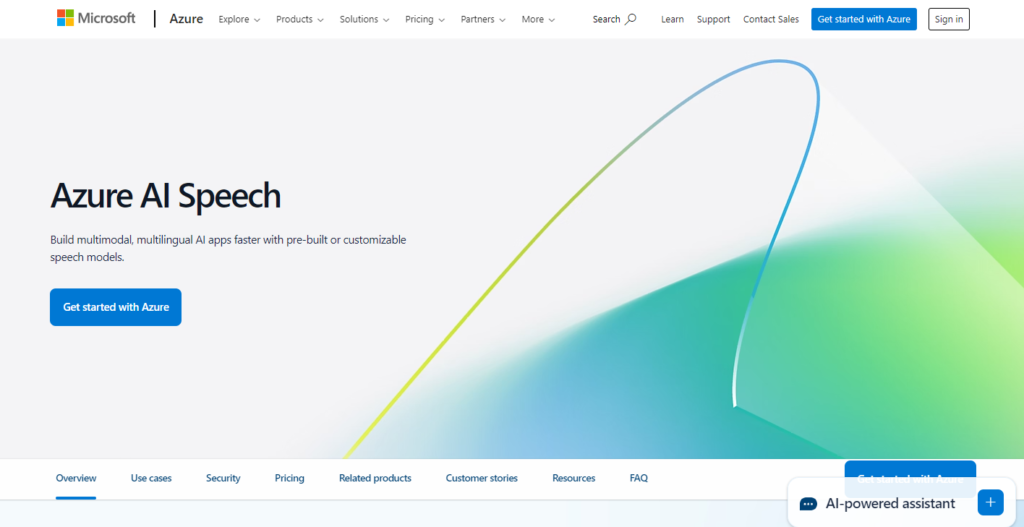
6.) DeepScribe
DeepScribe listens to patient-doctor conversations and automatically creates detailed clinical notes. It helps reduce manual note-taking and allows doctors to focus more on their patients.
- Benefits: Streamlines the documentation process by capturing all relevant details during consultations, allowing for more meaningful patient interactions.
- Ideal For: Physicians who want AI-driven notes from live conversations, reducing the need for after-hours documentation.
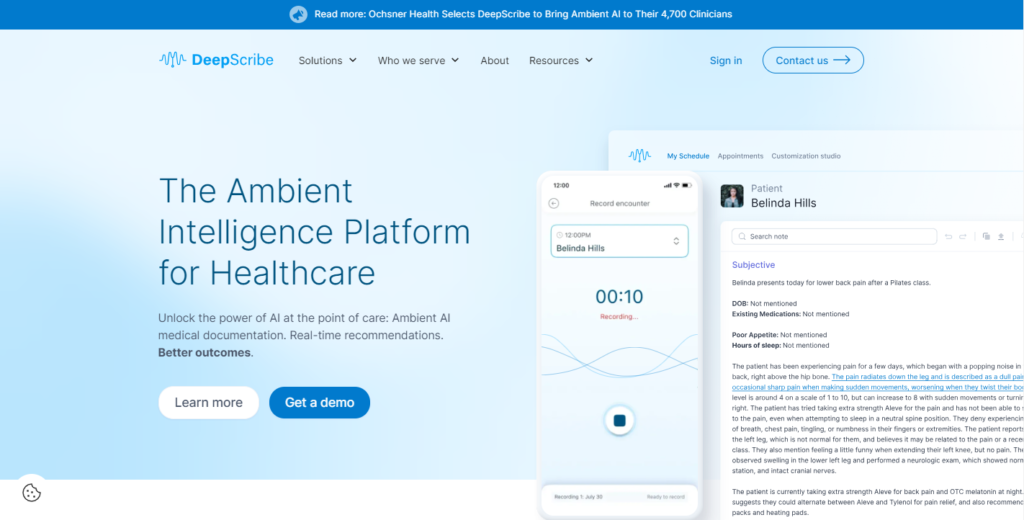
| AI Tool | Unique Features |
| Nuance Dragon Medical One | – 99% voice-to-text accuracy. – Extensive medical vocabularies. – Cloud-based, mobile access. |
| Suki AI | – Learns and adapts to doctor’s preferences. – Real-time dictation with intuitive voice commands. |
| M*Modal Fluency Direct | – Real-time speech recognition with continuous learning. – Provides quality feedback for accurate notes. |
| Google Cloud Speech-to-Text | – Customizable medical vocabularies. – Scalable cloud-based solution for small to large healthcare systems. |
| Microsoft Azure Speech-to-Text | – High-quality speech recognition with medical term support. – Integrates with Microsoft’s cloud services. |
| DeepScribe | – Real-time speech recognition with medical context understanding.
– Supports continuous learning to improve accuracy. |
The Benefits of AI Voice Recognition for Healthcare
Using AI voice recognition for healthcare can significantly improve the documentation process. Here are some key benefits:
- Time Efficiency: Physicians can complete documentation faster by dictating notes rather than typing them, which saves time and allows them to see more patients.
- Increased Accuracy: These tools are designed to recognize complex medical terminology, reducing errors in documentation and ensuring more accurate patient records.
- Improved Workflow: With seamless integration into EHR systems, doctors can update patient files more efficiently, streamlining their workflow and reducing administrative burdens.
- Better Patient Care: By minimizing the time spent on documentation, healthcare providers can focus more on their patients, leading to improved patient satisfaction and outcomes.
AI voice recognition for healthcare transforming by simplifying the process of medical documentation. These tools not only save time but also improve the accuracy and quality of patient records. Whether you’re a solo practitioner or part of a large healthcare system, adopting one of these AI-powered tools can enhance your workflow and allow you to focus more on delivering quality care.
When selecting an AI voice recognition for healthcare tool, it’s important to consider factors like accuracy, ease of integration with EHR systems, and the specific needs of your healthcare practice. The tools listed above are among the best available and can significantly improve documentation efficiency in any voice recognition for healthcare setting.
Big fan bro